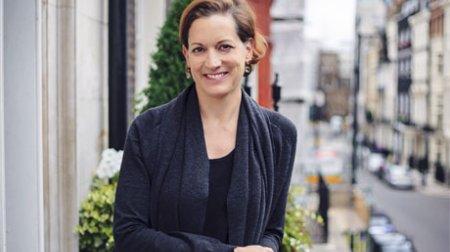Friends of Cobbenhagen - Lecture 2019
'Scientific institutions can contribute ideas on how to steer the information revolution in the right direction.'

Anne Applebaum
European institutions should work together more closely to understand what is happening in the areas of disinformation, fake news and malign influence campaigns. But central regulation is also needed to manage the information revolution. That was the message of American journalist and historian Anne Applebaum during the third Vrienden van Cobbenhagen Lecture in Tilburg in a full auditorium on January 17th. Applebaum is winner of the Pulitzer Prize and columnist for the Washington Post. She is also Professor of Practice at the Institute of Global Affairs of the London School of Economics, where she leads a program on disinformation and 21st century propaganda.
Information revolution
Applebaum points out that the current information revolution is not the first in history. For example, the invention of the printing press in the 14th century also made rulers, elite and clergy less relevant. And the same development also took place with the arrival of the telephone and radio. Anyone can become a journalist now, the information monopoly has been broken. The social consequences are incalculable; the printing press eventually contributed to the reformation and brought about wars. Applebaum: "Once again we observe such a revolutionary movement in the form of populism, which unexpectedly appears in various countries supported by the social media. Fake news and campaigns therefore have deeper causes. In the past, traditional newspapers theoretically at least aimed to inform people honestly, to build bridges, and to uncover bad things. And all this on the basis of facts and as much objectivity as possible. They served the national debate. These media have now largely been replaced by government-led channels or financed by specific stakeholders. There is no credible neutral medium in the US."
No longer a national story
"As a result, there is no longer a common story, because the same facts are no longer being used. This in turn encourages polarisation, fragmentation and information ghettos. People only identify with their own group, not with national interests. First of all, everyone belongs to a group of like-minded people: the echo chambers and filter bubbles. These increase distrust, also towards certain media channels, reinforced by manipulation, disinformation and campaigns. The Russian secret service seeks out these isolated groups and sets them against each other with all the tools of memes, hashtags and trolls. And that information was multiplied by bots. The same secret service works together with alt-rights groups; they influence them first of all by getting them all into echo groups that spread their news. By the way, sponsoring extremism is not a new policy of the Russians, in the former Eastern bloc they have already made a lot of use of fake news. Now small commercial agencies are hired, which have targeted Clinton and Macron, for example".
Support independent media
Applebaum states that it is crucial to support independent media as a counterweight to disinformation and social fragmentation. Political, technological and commercial bodies cannot and will not take on this role. It requires creativity from citizens and other institutions, such as universities. The EU could certainly explore the possibility of E-Identity: much of what happens on the Internet is anonymous. But we should only see accounts that can be trusted. The EU could perhaps proceed to verification. Protection of identity is a right and a privilege. Also more regulations for social media should apply, as apply to advertisements.
Finally, Applebaum appealed to all of us:
"You, as a citizen, will have to find ways to distinguish propaganda from facts in the coming decades. Democracy seems obvious, like water from the tap, but we have to realize that it can also disappear at some point."
